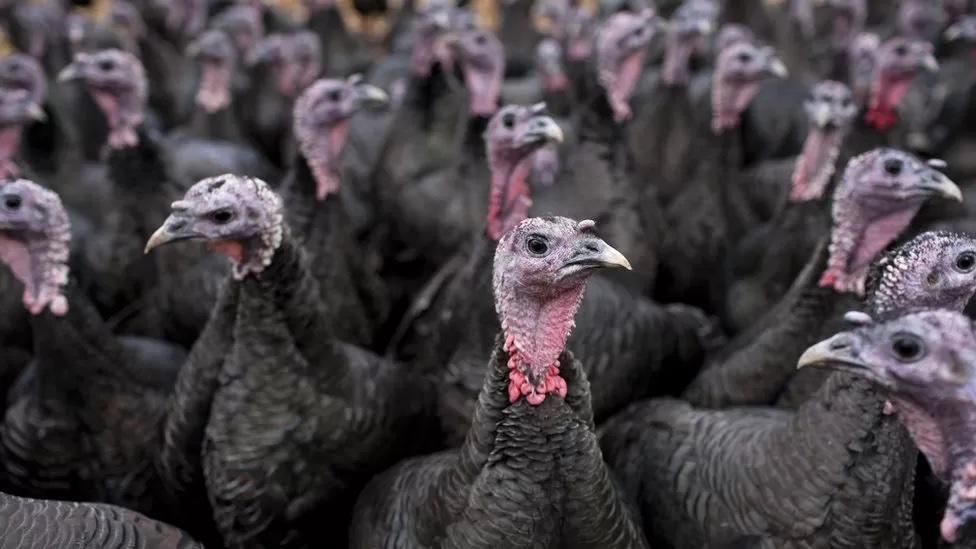No plans to widen bird flu rules in Scotland
- Published
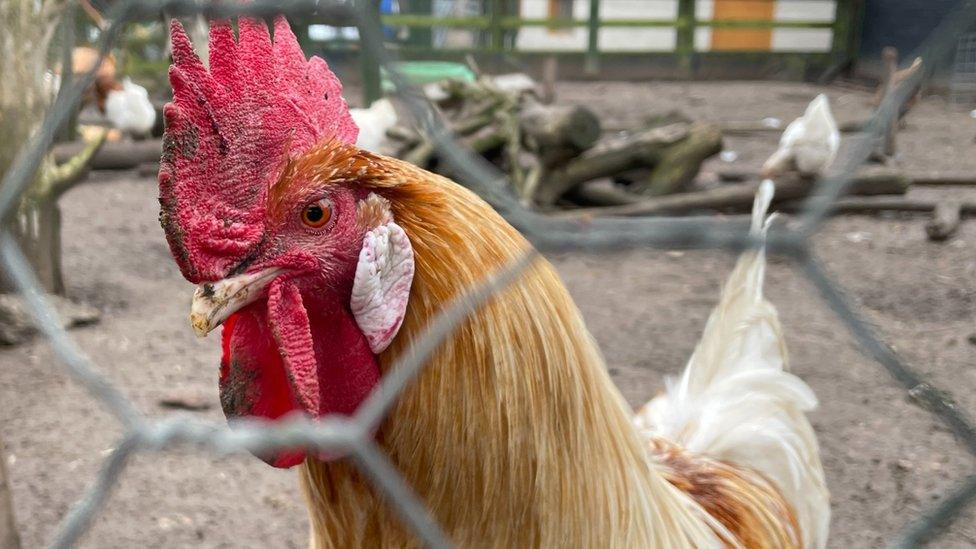
All poultry and captive birds in England must be kept indoors from 7 November
Strict new rules to fight bird flu in England will not be replicated yet in Scotland, the country's chief vet has said.
All poultry and captive birds in England must be kept indoors from 7 November amid the worst ever bird flu outbreak.
Chief veterinary officer Sheila Voas said the evidence in Scotland does not currently justify a housing order.
But the chief vet said officials were "keeping the situation under review".
The farmers' body NFU Scotland argues that it is essential that commercial flocks are protected by being housed indoors.
A total of four bird flu cases have been recorded in Scotland this month compared to 80 in England.
The Scottish tally includes cases found in Aberdeenshire and Orkney.
Avian flu is not considered dangerous to humans but people are advised not to touch dead or dying birds.
Speaking to BBC Radio Scotland's Drivetime, Ms Voas said: "Whilst we are keeping the situation under review we don't believe the evidence, as yet, justifies requires mandatory housing here.
"We are keeping an eye on number of cases, we're keeping an eye on wild bird results coming through and if the position substantially changes here then we may choose to go to a housing order as well.
"I think all breeders should be concerned and take whatever precautions they can to keep their flock safe."
Ms Voas added that keeping birds indoors should not be seen as a "silver bullet" for tackling bird flu and that other measures, such as keeping feeding and bedding away from wild birds, were also effective.
'Risk to businesses'
However, NFU Scotland is calling on the Scottish government to immediately adopt the same rules as those introduced in England.
Robert Thompson, chairman of the body's poultry working group, told BBC Scotland: "To protect commercial flocks from the wild bird population, it is essential that the birds are housed.
"The Scottish government's view is that this problem can be controlled simply by bio-security. We do not agree with this at all.
"We will be pushing very had to get this rectified because poultry farmers can't risk their businesses."
In July, Scottish government agency NatureScot announced it was setting up a taskforce to respond to bird flu.
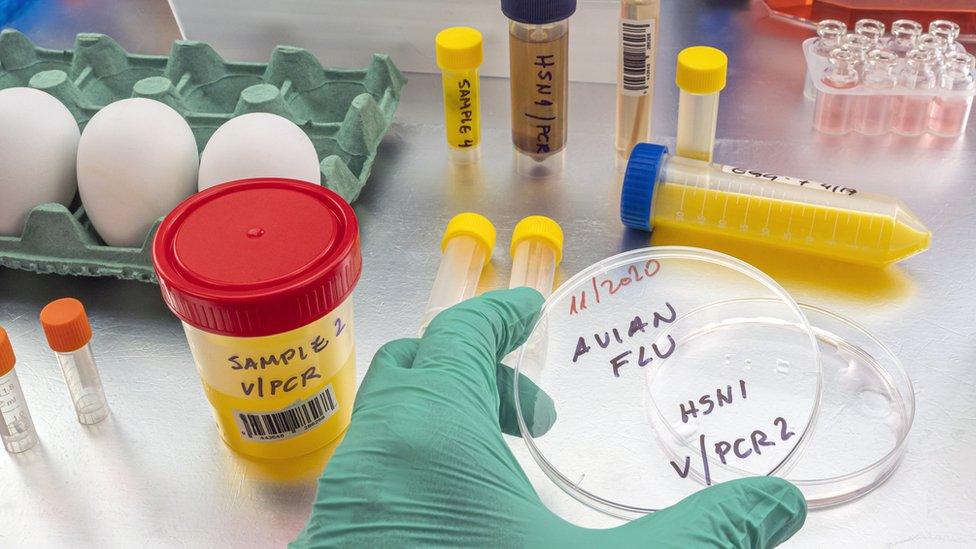
The move followed outbreaks over the spring and summer among wild bird populations around Scotland's coast.
The main birds affected were gannets, skuas, geese and gulls.
Craig Michie, who owns the Barra Bronzes turkey farm in Inverurie, told BBC Scotland that most breeders were already keeping their birds indoors because of the avian flu outbreak.
He said: "We're about the last producer in the country to shut our birds in. With the migration of wild birds now, thousands of geese flying over the farm, the risk is massive.
"It is a massive worry. With very little compensation on offer what it could do to your business is just devastating.
"It is a really stressful time to think about what we could lose."
Mr Michie said his birds were worth between £100 and £150 each but the available government compensation for a cull was a fraction of this.
- Published31 October 2022
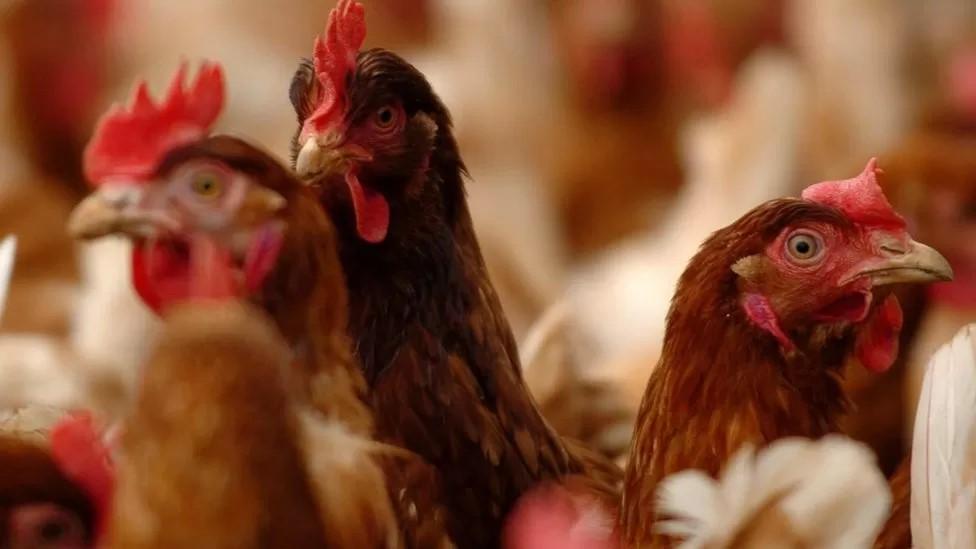
- Published14 July 2022
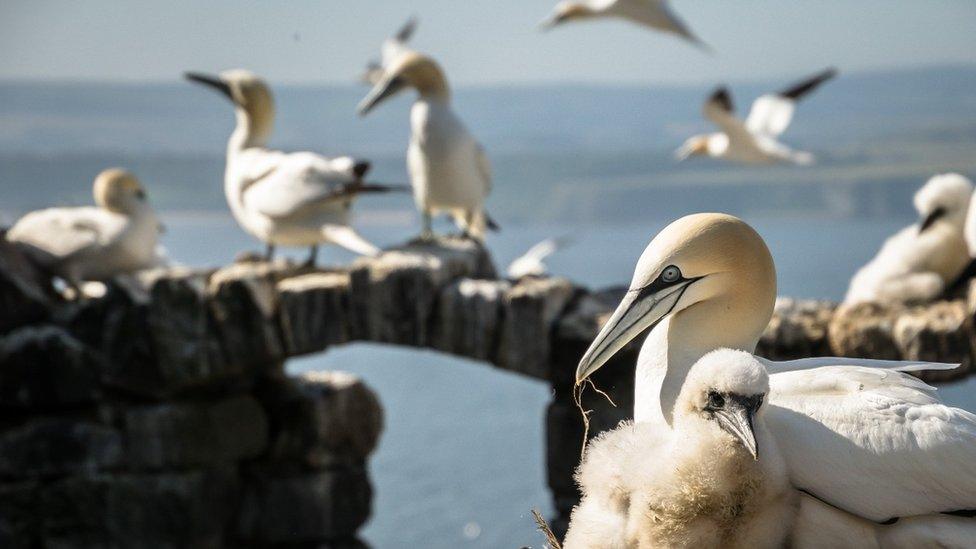
- Published31 October 2022
